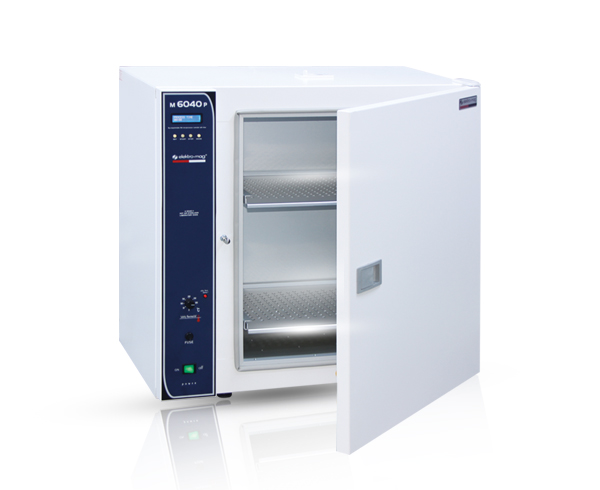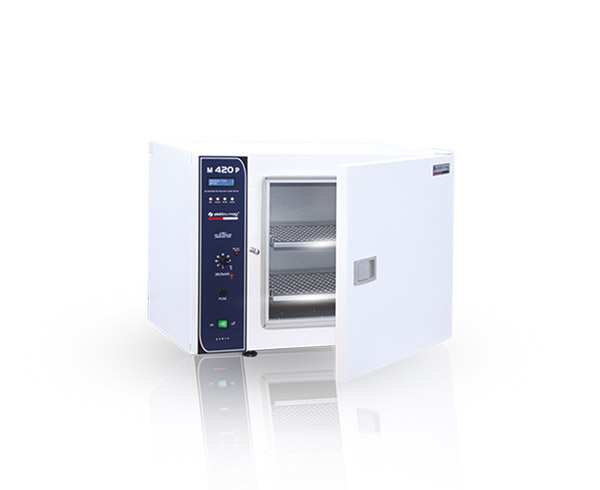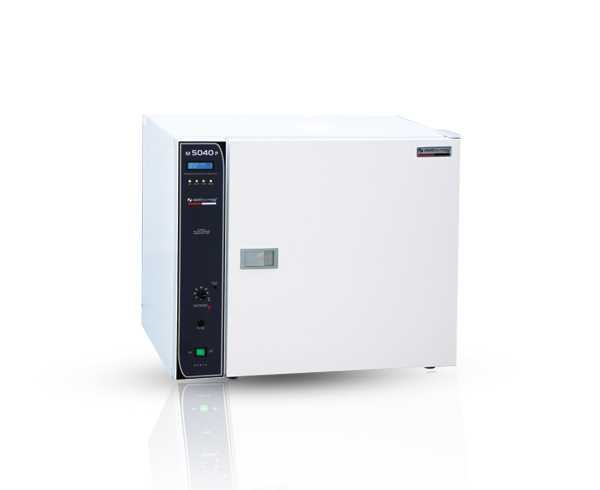The M 6040 P SS Hot Air Sterilizer is designed for efficient sterilization with a temperature range of +5 °C to 250 °C. Its advanced PID digital control and solid-state relay system ensure precise regulation of temperature increments of 1 °C, maintaining accuracy within ±1 °C. 120 liter stainless steel chamber provided with circulating fan. It ensures effective air circulation which enables more homogeneous temperature distribution in the chamber. Safety measures like a liquid expansion thermostat provides to work with a relaible product. Its robust stainless steel chamber enhances durability. Elektro-mag M 5040 P SS is ideal for laboratories and medical settings.
Technical Specifications:
| Specification | Detail |
|---|---|
| Working temperature range | Ambient temperature +5°C to 250°C |
| Capacity (Chamber volume) | 120 liters |
| Type of thermoelement | J type |
| Temperature control | PID Digital control |
| Load switching element | SSR (Solid State Relay) |
| Thermostat setting increments | 1°C steps |
| Thermostat working accuracy | ± 1°C |
| Thermometer display increments | 1°C steps |
| Chamber temperature accuracy | ± 2°C |
| Circulating fan | Available |
| Postpone/Process time | 1 min – 99 hours 59 min |
| Safety measure | Safety thermostat with liquid expansion (50-300°C) |
| Casing material | Sheet steel finished in stoved enamel paint |
| Chamber material | Stainless steel |
| Insulation material | Rock wool |
| Shelf | 2 Perforated stainless steel |
| Power rating | 1500 W |
| Power supply | AC 190-240 V / 50-60 Hz |
| Chamber dimensions (w x h x d) | 50 x 60 x 40 cm |
| Overall dimensions (w x h x d) | 79 x 79 x 53 cm |
| Net weight | 55 kg |
| Gross weight | 62 kg |
Category Information: Hot Air Sterilizers are crucial for effective sterilization in healthcare and research environments. They utilize dry heat, making them suitable for moisture-sensitive instruments, glassware, and medical tools. The stainless steel chamber models offer enhanced durability and heat distribution, ensuring optimal performance over extended periods.
FAQ: Q: How does a hot air sterilizer compare to an autoclave?
A: Hot air sterilizers use dry heat, ideal for tools sensitive to moisture, while autoclaves use steam under pressure for rapid sterilization. Both methods are effective, but the choice depends on the materials being sterilized.



